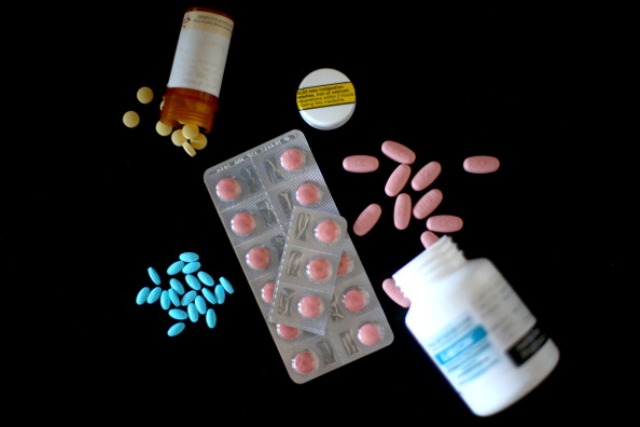-
Tips for becoming a good boxer - November 6, 2020
-
7 expert tips for making your hens night a memorable one - November 6, 2020
-
5 reasons to host your Christmas party on a cruise boat - November 6, 2020
-
What to do when you’re charged with a crime - November 6, 2020
-
Should you get one or multiple dogs? Here’s all you need to know - November 3, 2020
-
A Guide: How to Build Your Very Own Magic Mirror - February 14, 2019
-
Our Top Inspirational Baseball Stars - November 24, 2018
-
Five Tech Tools That Will Help You Turn Your Blog into a Business - November 24, 2018
-
How to Indulge on Vacation without Expanding Your Waist - November 9, 2018
-
5 Strategies for Businesses to Appeal to Today’s Increasingly Mobile-Crazed Customers - November 9, 2018
Medication Errors Found in 50 percent of Surgeries
Medication errors and adverse drug events were more common with longer procedures, especially those lasting longer than six hours and involving 13 or more medication administrations.
Advertisement
A study of more than 275 operations at Massachusetts General Hospital (MGH) revealed that almost half included at least one medication error or adverse drug event.
A new study on the frequency of medical error during surgery was presented on Sunday, concluding that mistakes were made during nearly half of the operations they analyzed. They defined adverse drug event as harm or injury to a patient related to a drug, whether or not it was caused by an error. There were also, however, incorrect dosages of medications given and issues with treating patient changes during surgery that indicated medication reactions. Of the adverse drug events that could have led to patients being harmed, 30 percent were considered significant, 69 percent serious and less than two percent were deemed to be life-threatening.
Overall, a medication error or adverse drug event was documented in 124 of 277 surgeries. The lead co-author goes on to say, “The operating room has been a hard environment to evaluate, but we used observers familiar with anesthetic care to do the observation”.
During the study, researchers observed 225 hospital anesthesia providers throughout 277 operations in 2013 and 2014.
Nanji added that because of the findings, they definitely can improve their methods in preventing perioperative medication errors, and that they can develop strategies to prevent these errors and their frequencies.
Surgery errors don’t always fall under medical negligence, but they do when the surgeon exhibits negligent conduct and acts in a way that affects the patient’s condition. In other parts of a hospital, pharmacists and nurses check inpatient prescriptions multiple times these days before they reach patients.
“This is the first large-scale look at medication errors in the time immediately before, during and directly after surgery”, said study author Dr. Karen Nanji, an assistant professor of anesthesia at Harvard Medical School in Boston.
By comparison, in this case, medical charts were reviewed, covering periods of time when the subjects were in the pre-operative area, in the operating room and in the recovery room or intensive care unit. What’s behind the high rate of surgery drug errors? With the scope of the problem now known, researchers said the hospital would explore ways to address it, including integration of more comprehensive decision support in the perioperative setting.
In a report which will be issued in the journal Anesthesiology, researchers found that mistakes occurred in five percent of drug administrations and one in every 20 drug administrations have caused adverse effects to patients.
Advertisement
“We already have an electronic anesthesia management and documentation system for medications, patient vital signs and other events occurring in the operating room”, Nanji said.





























